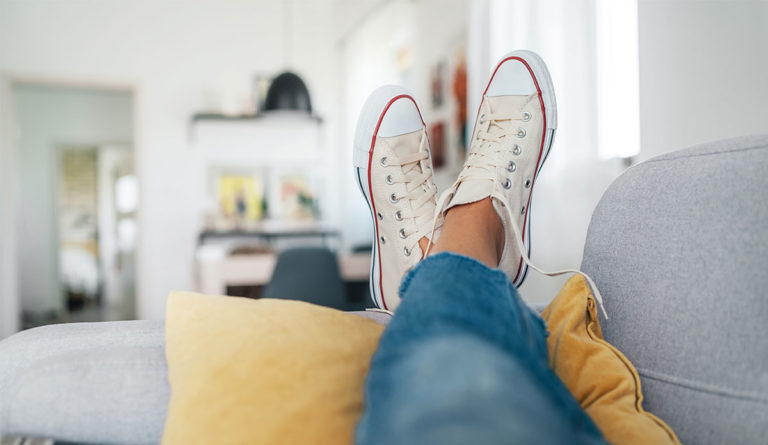“Home” After Incarceration
Feeling at home is difficult for individuals returning from incarceration, but it's critical for successful re-entry.

Read Time: 4 minutes
Published:
In our communal imagination, a home is a refuge from the gaze of society: a place we can relax, regroup, and rejuvenate. A sense of feeling at home (or “ontological security”) may be one reason housing is so important to our health. It provides constancy, privacy, a place for daily routines, and security. Ontological security helps us strengthen our identity and build a healthy life.
But for those returning from incarceration, feeling at home where one sleeps may be nearly impossible. We interviewed 27 people returning to New Haven, CT from incarceration twice between 2017 and 2018. They lived in residential group settings, with friends, partners, and family, or were homeless. In their residences, they experienced impermanence, punitive place rules, surveillance, and a lack of control. In contrast, they spoke about their ideal home as a place of privacy, control, and wellbeing.
Homeless returning citizens faced the impermanence of not knowing where they would sleep each night. Those in group residences were also stressed wondering where they would live next. For example, Carter, living in a transitional program for those with mental illness said: “I still consider myself homeless ‘cause I don’t got nowhere to go… their program only lasts for a certain while before I have to move out.” Residents in halfway houses feared being sent back to prison. Those living with others felt like they were imposing and were eager for more independence.
Abundant rules–about medication adherence, abstinence from substances, social engagement, seeking and maintaining employment, and departure and arrival times—prevented returning citizens from attending to their own priorities and goals. Those living with others in subsidized housing often did so secretly because violating strict guest rules could jeopardize their host’s housing. Carlos lived with his aunt: “She worries about losing [her place] but she knows I’m not making loud noises, I’m not being seen. I don’t come in and out of the building. …I just go there for shower, sleep.”
Returning citizens also described being surveilled in their residences. A sober house resident reported cameras “all over;” halfway house residents were subject to random urinalyses and monitored outings. They needed to obtain proof of their employment search by asking potential employers to sign a form, which often felt degrading. Those living with friends or family reported visits by probation and parole that felt invasive.
Cora valued privacy and safety: “I just want to have a bed and a door, a key, something of my own that I can just shut everybody out when I want alone time and be safe.”
People returning from incarceration also spoke about feeling a lack of control in the places where they lived. Those in group settings lacked control over basic conditions such as who they live with, and opportunities to be alone. When Leah returned from incarceration to live with a friend, she and her children shared a mattress on the dining room floor, limiting her control over their sleep or other routines. Those who were homeless had even less control, struggling to keep their bodies and belongings safe while working daily to meet their basic needs.
Returning citizens contrasted their current situations with past experiences of home and desires for the future. Leah said, “We really miss our space… I left everything. My kids’ beds, clothes, everything.…. They don’t have nothing … I try to act like it doesn’t bother me because I want to be thankful that [friend]’s helping me, but I want my space back. I want my kids to have their space back.” In imagining her future, Cora valued privacy and safety: “I just want to have a bed and a door, a key, something of my own that I can just shut everybody out when I want alone time and be safe.”
A sense of home was out of reach for all the people we interviewed. Yet it may be the very thing needed for successful reentry. Orienting to changes in the local environment, finding jobs, re-building relationships, and establishing support from health care and social service providers are all part of the enormous task people returning from incarceration face. Doing so without a residence where they feel safe and secure is daunting.
Others have noted the housing vulnerabilities that mass incarceration creates for those reentering communities. But little attention has been given to the way it prevents attainment of ontological security–a sense of home that is critical for successful re-entry, and for health and wellbeing.







